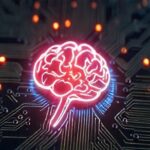
FlatPay Achieves Unicorn Status: A Fintech Success
FlatPay Joins Europe’s Fintech Unicorn Club FlatPay, a Danish startup, has officially joined the ranks of Europe’s fintech unicorns. This achievement marks a significant milestone...


FlatPay Joins Europe’s Fintech Unicorn Club FlatPay, a Danish startup, has officially joined the ranks of Europe’s fintech unicorns. This achievement marks a significant milestone...

Bone AI Secures $12M to Disrupt Asian Defense with AI Robotics Bone AI has recently raised $12 million in funding to challenge established defense industry...

Surveillance Tech Provider Protei Suffers Cyberattack Protei, a surveillance technology provider, experienced a significant cyberattack. Hackers successfully stole sensitive data and defaced their website, raising...

Runlayer Secures $11M to Fortify AI Agent Security Runlayer, a new startup focused on securing MCP AI agents, has emerged with significant backing. The company...

Luminal Secures $5.3M to Advance GPU Code Framework Luminal has successfully raised $5.3 million in funding to develop an improved GPU code framework. This investment...

Jeff Bezos Reportedly Joins AI Startup ‘Project Prometheus’ Reports suggest Jeff Bezos is diving back into the startup world as co-CEO of a new AI...

PowerLattice Gains Investment from Former Intel CEO for Power-Saving Chiplet PowerLattice recently secured investment from Pat Gelsinger, the former CEO of Intel. This investment supports...